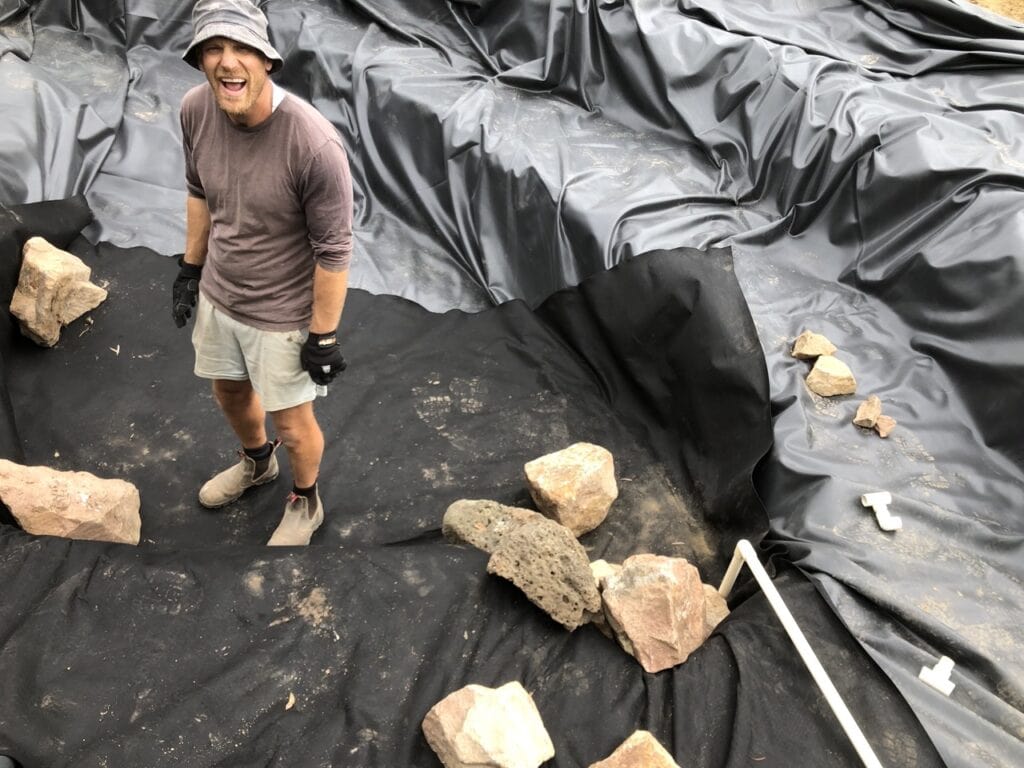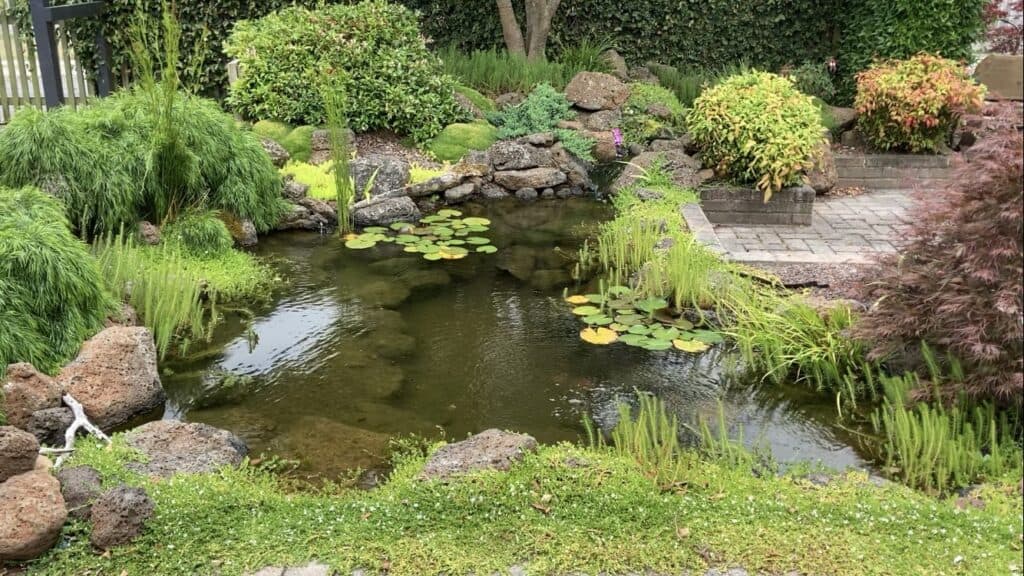While bog filters and plants like are stars of natural filtration, there’s another player in the pond ecosystem worth discussing: algae.
Algae often get a bad rap for their unsightly appearance, but they play a vital role in keeping pond water healthy and clear. Let’s explore why algae are so important and how to manage them effectively to maintain a balanced pond ecosystem.
What Is Algae?
Algae are photosynthetic organisms that use sunlight to create energy. While they share similarities with plants, algae aren’t true plants. They are their own unique lifeforms, separate from bacteria and fungi.
Some benefits of algae include:
- Oxygen Production: Algae contribute significantly to the Earth’s oxygen supply—phytoplankton alone provide 50-80% of the oxygen we breathe. In ponds, algae oxygenate water, benefiting fish and other aquatic life.
- Nutrient Absorption: Algae are highly efficient at absorbing nitrogen and phosphorus, essential nutrients in the nitrogen cycle.
- Pollution Management: Certain algae species can absorb heavy metals and break down toxins, making them valuable for water purification.
- Sediment Trapping: Algae trap fine sediments, much like sponges in filters, helping maintain water clarity.
The video below explains in more details my personal experiences with algae in my ponds.
How to Manage Algae in Your Pond
While algae are beneficial, excess growth can make your pond look unkempt. Here are natural and sustainable methods to control algae while preserving its ecological benefits:
Encourage Bacteria and micro-organisms
Beneficial bacteria compete with algae for nutrients. Over time, diverse strains of bacteria establish themselves in your pond, enhancing its resilience. To speed up this process, you can:
Use bottled or powdered bacterial inoculants, introduce water, rocks, or plants from healthy waterways.
Avoid Over-Cleaning
Over-cleaning disrupts the pond’s natural balance, resetting the ecological processes. After a deep clean, it takes time for bacteria and other organisms to re-establish themselves.
Manually Remove Algae
If you need to remove algae manually, do it gradually to prevent oxygen crashes. Excess algae can also be composted or fed to livestock like chickens.
Reduce Fish Feeding
Overfeeding fish adds excess nutrients to the water, fuelling algae growth. Many fish naturally consume algae, so cutting back on food can help.
If you are going to feed I prefer to use more natural foods.
Add Plants
Aquatic plants absorb the same nutrients as algae, reducing their availability for algal growth. However, plants take longer to react, so algae may dominate temporarily.
Improve Filtration
A well-designed bog filter utilises plants and bacteria while blending seamlessly into the landscape. Bog filters naturally capture sediments and support a balanced ecosystem.
Encourage Desirable Algae
Not all algae are equal. Some types, like diatoms, are less obtrusive and provide similar benefits. Products like Nualgi or Diatomix can promote more desirable algae species.
Algae: A Natural Part of Healthy Ponds
Algae are essential for maintaining a resilient, natural-looking pond. By understanding their benefits and managing them responsibly, you can create an ecosystem that thrives without relying on costly, artificial solutions.

Blueprint I use to build my ponds
- All the numbers I use to design my ponds, delivered straight to your inbox
- These formulas have helped people all over the world build beautiful, low maintenance ponds, without spending a fortune.
- Access to a private community of like minded people and a chat bot that loves answering pond related questions.
I hope this article and the linked resources helps you to understand how valuable algae is in a thriving pond ecosystem.
Obviously we don’t want it to take over but we should be willing to tolerate small amounts as part of the natural order of things. Thanks for reading.

Join my free email list
If you would like to join my free email list click the button below.
I promise I won’t spam you, I’ll only send information I think can help you save money building and maintaining a pond.

